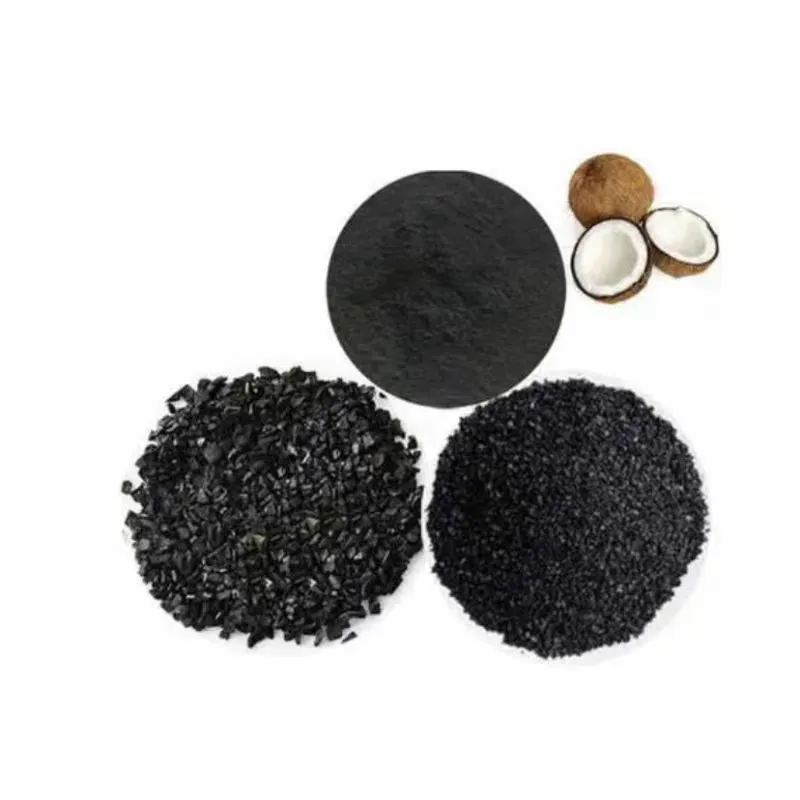Granular Activated Carbon: Your Questions Answered
2024-10-31
Granular activated carbon (GAC) is a versatile and widely used material in various industries, particularly for water and air purification. In this blog post, we’ll explore common questions about granular activated carbon, its benefits, and its applications.
What Is Granular Activated Carbon?
Granular activated carbon is a form of carbon that has been processed to create a vast surface area, making it highly effective at adsorbing impurities and contaminants. The granules are typically produced from materials like coconut shells, wood, or coal, which are heated in the absence of oxygen to create a porous structure. This unique property allows GAC to trap pollutants and odors, making it ideal for filtration applications.
How Does Granular Activated Carbon Work?
GAC functions through a process called adsorption, where contaminants adhere to the surface of the carbon granules. The large surface area of GAC allows it to attract and hold onto a wide range of substances, including:
- Organic compounds: Such as pesticides, solvents, and volatile organic compounds (VOCs).
- Chlorine and chloramine: Common disinfectants used in water treatment that can affect taste and odor.
- Heavy metals: Some forms of activated carbon can also adsorb heavy metals, though special formulations may be required for optimal efficiency.
What Are the Benefits of Using Granular Activated Carbon?
1. Effective Filtration: GAC is known for its ability to remove a wide range of impurities, making it a preferred choice for both water and air treatment systems.
2. Improved Taste and Odor: By adsorbing chlorine and other organic compounds, GAC significantly enhances the taste and odor of drinking water.
3. Versatility: Granular activated carbon can be used in various applications, including municipal water treatment, wastewater treatment, air purification, and industrial processes.
4. Cost-Effective: Compared to other filtration technologies, GAC systems are often more affordable to install and maintain, making them accessible for both residential and commercial use.
5. Environmentally Friendly: GAC can be reactivated through thermal processes, allowing it to be reused multiple times, which contributes to sustainability efforts.
Where Is Granular Activated Carbon Used?
Granular activated carbon is employed in several applications, including:
- Water Treatment: Used in municipal water systems to remove chlorine, chloramine, and organic contaminants, as well as in residential water filtration systems.
- Air Purification: Commonly found in air filters and scrubbers to adsorb odors, VOCs, and other airborne pollutants.
- Industrial Processes: Utilized in industries such as pharmaceuticals, food and beverage, and chemical manufacturing to purify solvents and other liquids.
- Wastewater Treatment: Helps in removing pollutants from industrial wastewater before it is discharged into the environment.
How Long Does Granular Activated Carbon Last?
The lifespan of granular activated carbon depends on several factors, including the concentration of contaminants, the flow rate of water or air, and the specific application. Generally, GAC needs to be replaced or reactivated when it reaches its saturation point, which can range from several months to a few years. Regular monitoring and testing of the filtration system can help determine when it’s time for replacement or reactivation.
Can Granular Activated Carbon Be Reactivated?
Yes, granular activated carbon can be reactivated through thermal processes that remove the adsorbed contaminants, restoring its adsorption capacity. This process typically involves heating the carbon to high temperatures in a controlled environment. While reactivation can be more cost-effective and environmentally friendly, not all GAC can be reactivated, so it's essential to check with the manufacturer.
Is Granular Activated Carbon Safe?
Granular activated carbon is generally safe for use in water and air filtration applications. However, it’s essential to use food-grade or USP-grade activated carbon for applications involving drinking water or food. Additionally, proper handling and installation are crucial to ensure that no dust or particulate matter from the GAC enters the water supply.
Conclusion
Granular activated carbon is an effective and versatile solution for a variety of filtration needs, providing numerous benefits in water and air purification. Its ability to adsorb a wide range of contaminants makes it a popular choice for both residential and industrial applications. If you have further questions about granular activated carbon or need advice on selecting the right filtration system, feel free to reach out!



